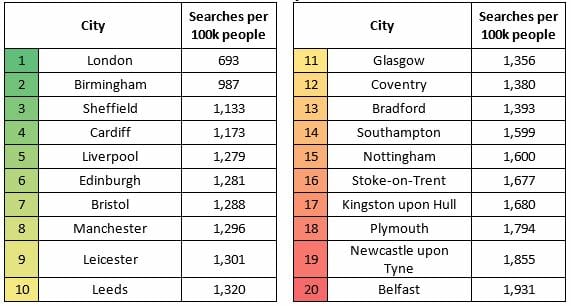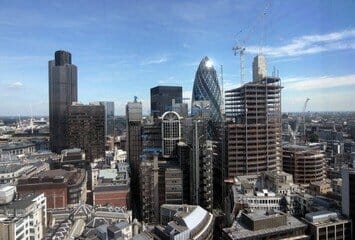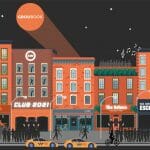Sleep is essential for good physical and mental health. However, one Wellbeing Report found that two-thirds of UK adults suffered from disrupted sleep, while one-third of people believe they have insomnia. Now, with contributing and increasing factors such as anxiety during the pandemic, new data reveals the cities where in the UK people are the most likely to get natural and undisturbed sleep.
One mattress manufacturer, OTTY Sleep, has revealed the major UK city where most people feel the most rested and content with their sleep. By researching sleep-deprived related keywords and analysing the most common terms that we ask Google, the mattress manufacturing business has collated new data that explores inter-city and regional search volumes, the sleep remedies we seek out, and how our sleeping patterns have changed since the pandemic started.
The 20 most populated cities in the UK were analysed, looking at over 400 key terms and their search volume in each. Search terms included ‘Can’t sleep’, ‘Sleeping tablets’, and ‘Insomnia’. Comparing this against their population, and where these terms are searched for the least, exposes the cities where people find it easiest to sleep naturally. Here, we explore the results and how the UK can also achieve their dreams of a good night’s sleep.
The city that always sleeps
London was revealed as the UK’s best-rested city. Surprisingly, and despite being the UK’s equivalent of ‘The City That Never Sleeps’, London demonstrated a limited need for sleep assistance. For every 100,000 people in the English capital, there were only 693 searches per month for sleep-deprived terms. This means that Londoners were, on average, 51 per cent better rested than the UK average. As the centre of business in the UK, you could easily believe that a good night’s sleep was hard to come by. However, the people of London have proved that they don’t have too much difficulty getting their shuteye.
While London sleepwalked their way into first place, other well-rested cities included Birmingham and Sheffield. Searches for sleep-deprived terms were 30 per cent and 19 per cent below the UK average respectively. This shows that people achieved more natural sleep and did not need as much assistance in getting some shut-eye.
Meanwhile, some cities appeared more nocturnal in nature. Belfast was confirmed as the most tired city in the UK. The Northern Irish capital searched for sleepless related terms more than any other major UK city. The people of Belfast were 38 per cent more likely to seek out help from Google than the average search score across the 20 cities. For every 100,000 people, sleep-deprived terms were searched for 1,931 times.
Newcastle upon Tyne and Plymouth placed as the next most tired cities. People in these two areas are 32 per cent and 28 per cent more likely to search for sleep-deprived terms than the average person across the UK’s major cities.
Best Rested Major UK Cities

A sleeping pandemic
It’s important to understand why some people are finding it easier to sleep and why others may be suffering with sleep deprivation. Anxiety surrounding the pandemic may have contributed to some people’s sleeping problems. Between the start of 2020 and the start of 2021, searches for sleep-deprived terms increased by 30 per cent.
The city with the biggest increase was Birmingham, where searches have grown by 51 per cent since the pandemic started. This was followed by Leicester with a 50 per cent increase. London, Glasgow, and Bristol also increased their searches by 38 per cent.
Every major UK city increased their searches for sleep-deprived terms in the past year. This demonstrates a clear shift in the lethargy of the country. Only Cardiff and Southampton had a minimal increase of 4 per cent and 16 per cent respectively, though any increase is concerning. While London was the best-rested city, even their increase shows the growing problem of sleep deprivation.
Tired solutions
The sleep-deprived terms in the data included searches for sleep remedies. The key terms ‘sleeping tablets’ and ‘sleeping pills’ were the most searched for terms in the UK, with 27,100 and 22,200 searches every month. Interestingly, these terms and ‘melatonin in the UK’ were searched for more by the UK public before asking ‘why can’t I sleep’ and ‘how to get to sleep’. This may indicate that the public is seeking out quick-fix solutions for their sleeping problems before attempting to truly understand their night-time issues. Meanwhile, terms such as ‘healthy sleep’ and ‘improve sleep quality’ were only searched 320 times each per month in the UK. Re-educating Brits on long-term sleep solutions is vital to getting a proper night’s sleep, rather than relying on quick-fix pills that might get you to sleep but not leave you feeling rested.
Sleep deprivation can be caused by several factors, including anxiety, physical health, the quality of your bed, and your lifestyle routine. During the past year, most of these aspects have been out of our control. Lockdowns have impacted our routines, including exercise, and caused substantial stress. However, it is worrying that the data indicates more people looking for immediate relief for their sleeping troubles. Remedies including melatonin and other sleeping pills only offer short term solutions to this problem.
Melatonin, for example, is a natural chemical that your body produces when you are close to sleep. Using an additional supplement can increase your reliance on the chemical, meaning that it is more difficult to sleep in normal circumstances. Other side effects of the drug include nausea, dizziness, headaches, and prolonged tiredness when you should be alert. Instead, healthier alternatives to relieving your sleep troubles are recommended.
Exercise and meditation can help with sleep. Not only does it help correct chemical imbalances in your brain and body, but they are also great tools for helping with anxiety and mental health. Creating a consistent routine is also important, and strict night-time routines can further help when it comes to getting to sleep. The body will release natural melatonin when it recognises it’s time for bed, so dimming the lights and preparing yourself for sleep is better than throwing yourself straight into bed after an evening in front of your phone or TV.
You should also consider how your bed affects your sleep. It’s often overlooked despite its importance in our lives – we spend around a third of our lives in one. Good mattresses are supportive, breathable, and comfortable. Sleep is important for body repair, not just your rest. When lying down, different parts of your body will be pressured on the mattress. A mattress that combats this effect is essential. Other factors which can impact our sleep include odour, moisture, and temperature. A bamboo mattress is usually a viable solution for these problems. The natural components of the mattress are antibacterial, help eliminate odour and moisture, and regulate temperature, further helping you to get to sleep every night.
Sleep is vitally important for our health. But while the data shows that sleepless city people are becoming increasingly tired, there is also evidence of a determination to improve our sleep. Whether through positive routines, good exercise, or a quality mattress, we can all become pro-sleepers and sleep as well as London with a little help and guidance.
Sources:
https://www.nhs.uk/medicines/melatonin/
https://otty.com/blogs/sleep-advice/the-relationship-between-exercise-and-sleep
https://www.sleepfoundation.org/insomnia/exercise-and-insomnia



